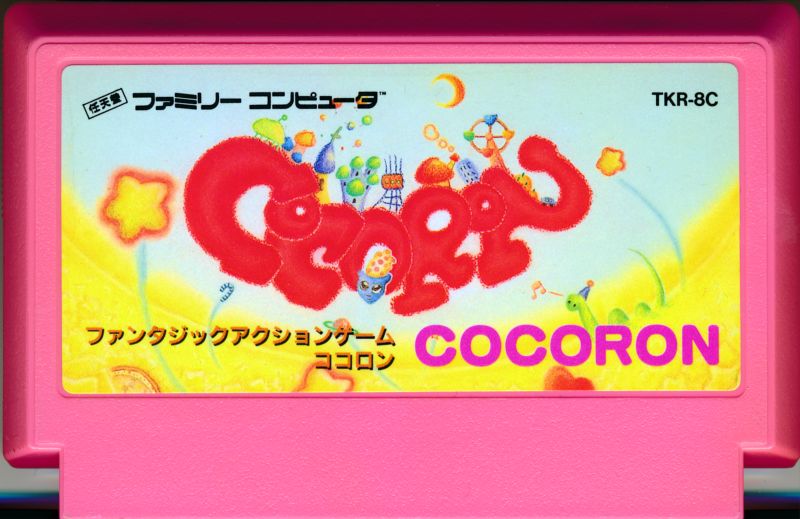I once again attended MAGfest this year, and had a wonderful time presenting panels alongside LordBBH. (Check out the videos of our panels!) My good friends from Brave Wave Productions were also in attendance, and this year they brought Takashi Tateishi as a guest. Tateishi-san has had quite an interesting career: working on one of the most beloved soundtracks ever in Megaman 2, lending his composition skills to cult favorites at Takeru, and doing a whole mess of sound work at Konami in the late 90s. I’m extremely happy to have had the chance to sit down and chat with him about his career. Read on for some interesting anecdotes about early game music development… and also learn about the rarest official Megaman music release of all time.
Thank you for taking the time to chat with us, Tateishi-san. To start things off, how did you take an interest in composing music for videogames?
I studied piano originally. Initially, I was in a band as a keyboardist. I wanted to become a pro musician at some point, but once I graduated from college, there wasn’t a clear path to make that happen. I wound up working at an ad agency initially, and during that time, I saw a job listing for Capcom. It was a listing for “experienced workers”, but I applied anyway, and I was hired.
What was the recruitment process like for companies at the time? It seems like a lot of these firms in the infancy of gaming were a bit disorganized.
In my case, when I saw the Capcom advertisement, I wound up calling them about it first. I talked to the HR department and told them honestly: “I graduated with a degree in economics. Is it OK if I apply?” They were like, “Well, we only take people with an arts degree as a manner of policy, so you probably won’t get too far.” But I was feeling confident, so I sent the demo tape. It turns out they actually liked it, and I was hired!
Generally speaking, though, Capcom had a set of requirements for composers, so a lot of people who joined around the same time as I did had genuine musical backgrounds. They had it a bit tougher, I think.
When you submitted things like demo tapes back then, did you also have to demonstrate ability in being able to program sound?
– Well, let me try to explain it like this: Teaching a musician the logic of coding, versus teaching a programmer musical knowledge. If you teach a musician how to program, back in the day, it would have taken about two months. If you tried to teach a programmer about music theory, that might take years. From Capcom’s perspective, they emphasized musical knowledge over coding. If you knew music, that was enough for them.
Were you into video games at the time? Were you familiar with the games Capcom made?
At the time, I played arcade games, but I didn’t have a Famicom. I wasn’t familiar with the company’s name, but I knew games like Makaimura, which I came to realize later. At the time, the biggest companies were Nintendo, Konami, and Namco.
You were living in Osaka at the time — what was the game development environment there like? There were quite a few well known game companies in the region. Was there a sense of rivalry and competition amongst everyone?
Capcom and SNK were definitely rivals. Konami [who was located nearby in Kobe at the time] saw themselves as above those two. *laughs*
When you got into Capcom, what was the company culture there like? Was it pretty relaxed, or more serious?
When I joined, it was very tight-knit. Everyone was good friends with each other — a nice group of friends who all got along. People definitely took their jobs very seriously. At the time, though, Capcom was still quite small.
And Capcom was just getting into Famicom development at the time, correct?
At the time, Capcom had been mostly focused on arcade games, but they had begun doing Famicom games as well, yes.
What was your first project at Capcom?
My first game was called “Mad Gear.” I believe it’s called “LED Storm” overseas. It didn’t sell very well, so it’s not that well known.
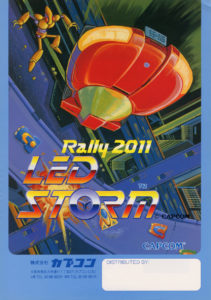
I know that one, actually!
*gasp* Mad Gear is one of those games where I wonder, “did this really come out?” *laughs* It really didn’t sell at all.
What were the challenges of working with FM synth coming from a piano/keyboard background?
Actually, I quite enjoy working with FM synth. However, at the time, Capcom was split into the consumer division and the arcade division. All of the talented folks who knew how to get the most out of FM went to the arcade section, and people who weren’t quite as good were working on NES games. *laughs*
What did you work on after Mad Gear?
After that, I think I went to work immediately on Megaman 2.
My understanding is that Megaman 2 was basically a side project for a group of Capcom developers. Is there any truth to that anecdote?
The first Megaman wasn’t a really big seller in Japan, so the sequel wasn’t green-lit by management. However, the team did ask management if they could make the game in their spare time. They were allowed to do that, and they made the game within three months.
Three months? Wow!
Very short indeed! The directors, Akira Kitamura and Keiji Inafune, definitely worked very hard to get the game out.
Were you feeling the time crunch as well when it came to composing music?
I was a big fan of the first Megaman, so I was extremely honored to be able to participate in the creation of Megaman 2. I went into that project extremely motivated, even though I was incredibly busy! The original Megaman had an amazing score by Manami Matsumae, and I wanted to keep pace with that. I worked hard to make a soundtrack that would live up to the standards set by her compositions. Actually, though… I made a bunch of tracks for the game, but out of all of those, only Crash Man wound up getting approved by Kitamura. Everything else was rejected because Kitamura wanted “cool”-sounding music. I had to go back and make new tracks that skewed more on the “cool” side.
Crash Man does sound rather cheery compared to the rest of the game, huh?
It does have a more comical sound, yes.
Are there any tracks you’re particularly fond of in Megaman 2?
I’m really attached to all of the tracks! But if I must pick a favorite… I really like the ending song. It’s a longer tune, and it eventually fades back into the main theme.
I feel like the one track that’s stuck around the longest is the Wily 1 theme. How do you feel about all of the remixes and reinterpretations of that song that have been made over the past 30 years?
I worked on that game over thirty years ago, but the fact that people are still out there making arrangements and remixes… it helps preserve the existence of that work. If nobody does that, the game essentially fades from existence. Any remix or arrangement I listen to, I wind up liking them. I mean, yeah, there are some bad ones, too, but… *laughs* I’m still very grateful!
What is it about Wily 1 that you feel gives it such staying power?
Three reasons: The game itself is very good, what means a lot of people get a chance to hear the music. Secondly, the music expresses a guitar sound very well, despite being a Famicom title. At the time, that was quite rare. Finally, I made the track so that you can sing to it. You can just kind of come up with lyrics on a whim while you’re having dinner. *laughs* I deliberately made the music to be conducive to that sort of thing.
So here’s something I’m curious about. It’s in regards to a piece of music used in the Japanese Rockman 2 commercial.
It’s a remix of Heat Man’s theme, and I have never heard it anywhere else. Was that your arrangement, and is there anywhere we can hear the whole thing?
So back in the day, there was a contest to design boss characters for the game. The eight winners of the contest all got a special audio cassette that contained that song on it. In total, there might be around ten of those tapes in existence.
Man, if we could find one–! *laughs*
Akira Kitamura definitely has one! Unfortunately, I don’t.
On that note, do you still have any demos of the rejected Megaman 2 tracks?
Alas, I do not. Since I was an employee of Capcom, any work I did within the company on company time is owned by them. We weren’t allowed to take anything with us when we left.
Your next game composition work was Willow for the arcade. This was a licensed game based on a Western movie. How did you work with the licensor, Lucasfilm, and what kind of material were you given to work with when working on the game’s development?
I did get to see the movie in advance. The direction from the development team was that I should make music that didn’t veer too far off from the world of the movie — there had to be a level of consistency.
It feels like, at that point, Capcom was pursuing more licensed games that would sell in the West.
Yes, yes! Very yes! And, to be honest — this might not be the nicest thing to say, but I lost a lot of work motivation when I was stuck with licensed games.
What did you do at Capcom after Willow wrapped up?
I worked on the conversion of the arcade game Side Arms to the PC Engine HuCard. I did the music.
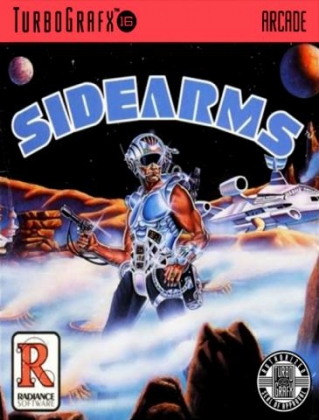
So that was done in-house at Capcom? If I remember right, NEC was the publisher.
It was developed by Capcom, but it looked like it was licensed out to NEC. That was done so we wouldn’t “offend” Nintendo.
Did you like working on the PC Engine soundchip? I personally really like that sound hardware.
Yes, it was quite fun! It offered a lot of sound variation, especially more “quiet sounds.” You could do a lot with it. My original task was to reproduce the arcade music on the PC Engine, but I didn’t find that very interesting, so I just rearranged the music to give it more of a hard rock feel. People were angry about that. *laughs*
About when did you decide to leave Capcom?
I left around 1989. I felt that if I really wanted to make it in the entertainment industry, I would have to relocate to Tokyo. I went to Tokyo and joined a company called Takeru with Akira Kitamura, Koichi Yotsui, and Shinichi Yoshimoto.
How long were you with Takeru? They had a couple of notorious cancelled games, like PC Cocoron.
Cocoron was a very good game that came out for the Famicom after the Super Famicom had entered the marketplace and was hogging the spotlight. There weren’t many opportunities for new Famicom games to sell well after that. It never stood a chance of selling enough copies. I left Takeru and joined Konami after Cocoron, but from what I know, development on the game had started, but they were unable to finish it because the company lacked funding to do so.
Did you work on anything else at Takeru?
I worked on the X68000 game Nostalgia 1907, a text adventure by Koichi Yotsui. Unfortunately, that didn’t really sell well, either…
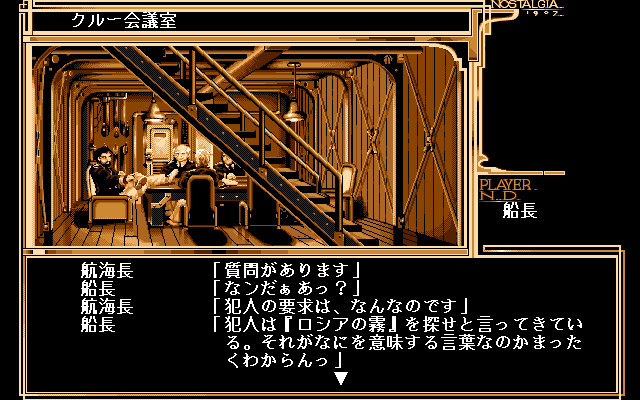
You mentioned wanting to go to Tokyo to get further into the entertainment business, but it feels like you were still pulled into video games while you were there!
I thought that working in a smaller company would have allowed me to make music the way I wanted to. The thing is, when you’re a small company, you are constantly worried about budgets and cash flow. When that’s in the back of your mind, it’s hard to make music the way you want to. I realized that going to Konami was the right decision to make.
At that point, Konami has moved to Tokyo, right?
It was about two years after Konami had created their sound division in Tokyo.
What was the structure like? Did the Tokyo branch report back to Kobe? At some point, I know Konami just shuffled everything to Tokyo.
At the time, Kobe was still running the show, but Tokyo had production divisions for graphics, programming, and sound.
What were some of your first works for Konami?
Konami had stopped making NES games by the time I joined, so I worked as a sound designer for Game Boy titles. I also worked on sound for some medal games as well.
Were you able to do any work on 16-bit platforms at all?
I wound up doing the Tokimeki Memorial series from its PC Engine CD debut.
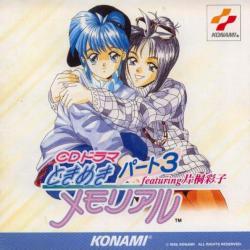
Yeah, if we look through your discography, there’s… a lot… like, a LOT of Tokimeki Memorial CDs. *laughs* Like, that’s almost all you did for the remainder of the 90s.
Yes, I was quite busy. *laughs* The games were a thing, but it became a big media mix property. I was involved in all of that, along with planning live events.
Did that eventually wear you down?
I mean, I wasn’t sick of it, but it was pretty exhausting. I was just way too busy.
It seems like an interesting time at Konami, but were you able to do anything besides TokiMemo while you were there?
There was a time when I was in charge of all sound and recording work within Konami. Anything involving sound, like voice acting — that was under my umbrella. Titles like Powerful Pro Baseball, Winning Eleven, Suikoden, Metal Gear, Silent Hill…
Do you do any directing for the voice actors?
Yes, and I still do that to this day!
Ah, so did you wind up doing any of the English voice directing for various games? I interviewed Donna Burke a while back, and I know she’s based in Japan, so I’m curious as to how much of the recording work is done in Japan.
Hmmm, I did the Japanese version of Symphony of the Night for sure… it’s hard for me to remember specifics, because I was just so busy during that time! But I think did do some of it.
What were your last few projects at Konami, and why did you leave?
One of the last projects I was involved in at Konami was Suikoden III as a project manager. At one point, the game was delayed. My “discipline” as a result was to be moved into a different department — online infrastructure — that had nothing to do with music or sound. I took that as a sign that it was time to leave.
That sounds… pretty typical for Konami.
*laughs*
I’m surprised you can even talk about it! A lot of ex-Konami folks seem really scared to discuss their time working there.
For me, it’s fine!
What have you been doing since?
I started my own company that records CDs and does voice acting work for games. We also manage fan clubs for voice actors and actresses, arranging concerts and event planning, making merchandise, and so on.
To wrap things up, have you given any thought of returning to game music, and what do you think of the current state of VGM?
I’ve been asked that for close to a decade now, but honestly, I have no plans. As for modern game music, it’s advanced considerably since the days when I was involved. One thing I’m worried about, though, is that modern VGM tends to tell too much. It’s so perfectly made that it can convey the entire feel that the game is going for. But for me, game music shouldn’t go to that level — it should leave a bit to the imagination of the player.
